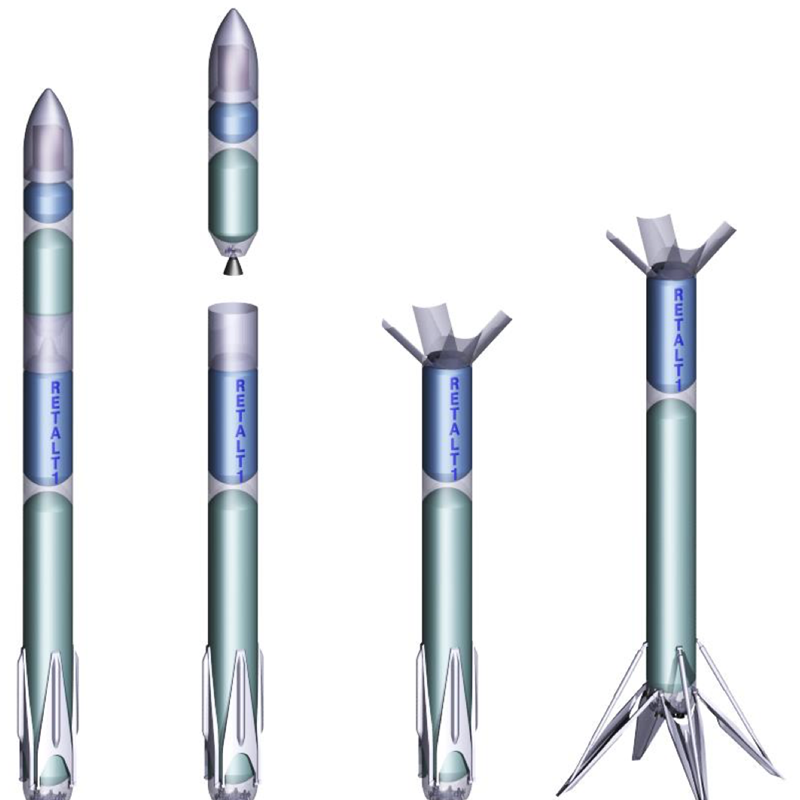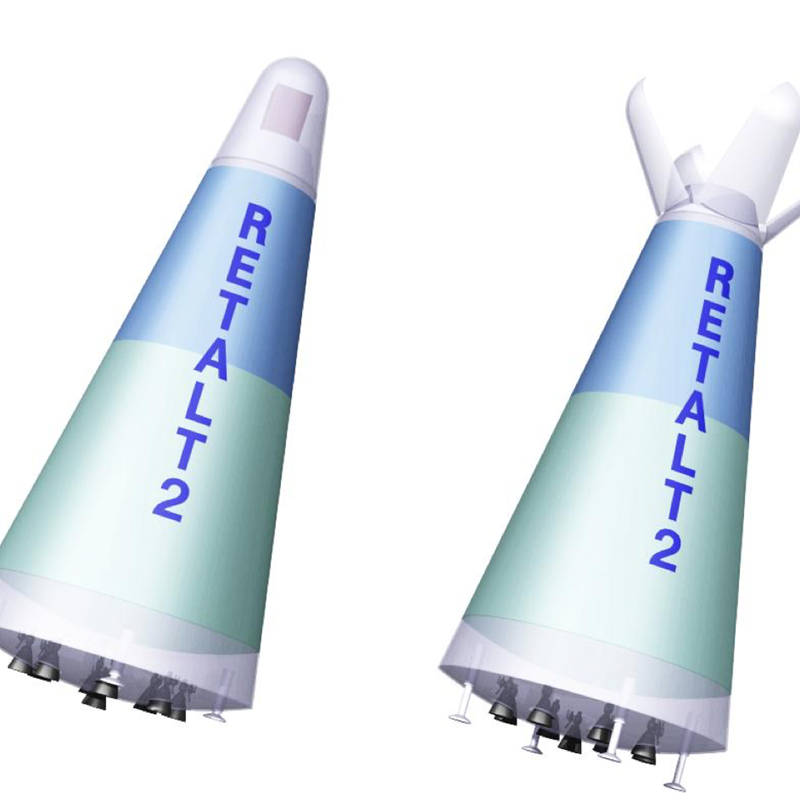
The development of reusable launcher vehicles is one of the aerospace industry’s biggest trends. The space shuttle – considered for many years to be a state-of-the-art vehicle – required expensive maintenance costs. However, recent developments, primarily led by US companies such as Blue Origin and SpaceX, point once again in the direction of reusable launch vehicle systems (RLV).
RETALT – Retro Propulsion Assisted Landing Technologies – a project that includes Amorim Cork Composites, has been launched in this context and aims to reduce the cost of the next generation launchers and transport systems by using new technologies that facilitate re-use.
The project, that joins European industry and research, involves important European aerospace companies and will be directly supported by the European Union founds. In addition to Amorim Cork Composites, the RETALT consortium includes DLR (Germany), CFS Engineering (Switzerland), Elecnor Deimos (Spain), MT Aerospace (Germany) and Almatech (Switzerland).
Thermal protection with cork
Amorim Cork Composites’ participation in the project will support the development of simulation processes and the structural design with the production of thermal protection components. The company’s mission includes the creation of a new cork-based solution – Spatulated Thermal Protection System (TPS) – which can be applied to the launcher’s base area and fairing, complementing the current cork TPS portfolio offer. In this context, the development of solutions to cover different planned systems, producing several small-scale breadboard prototypes.
Since retro propulsion assisted landing is the only recovery method currently applied, RETALT expects to deliver cost reductions.
Two types of rocket launchers


During the three years of the project lifetime the consortium will investigate the areas of aerodynamics, aerothermodynamics (i.e. the temperatures that evolve at the surface of the vehicle during flight), flight dynamics, guidance, navigation and control, and advanced structural parts, materials and mechanisms. For this purpose, two types of rocket launchers will be investigated which both start and land in an upright position. One of them will have two stages and will be similar to conventional rockets like the Falcon 9 or the Ariane 5 launcher. For this launcher only the first stage will be landed again. The second launcher has only a single stage. It will be designed for the use of smaller payloads and when returning it will break not only with retro propulsion but also with the aid of a large aerodynamic base surface at the bottom.
“In the USA, Retro-Propulsion is being practiced. However, the phenomena and physics behind the technologies are not completely understood. With high quality data from wind tunnel experiments and ground demonstrators combined with numerical simulations, we will be able to understand the details and take a big leap towards applicability of reusability in Europe. The know-how for a rapid application of re-usability in European launchers can only come from a strong common effort of research and industry.” Prof. Ali Gülhan states, project coordinator of the DLR
More about RETALT
RETALT (RETro propulsion Assisted Landing Technologies) is a project which received a funding of 3 M€ from the EU Commission in the frame of the Horizon 2020 research and innovation programme under grant agreement No 821890.
The partners of the project are DLR (Germany), CFS Engineering (Switzerland), Elecnor Deimos (Spain), MT Aerospace (Germany), Almatech (Switzerland) and Amorim Cork Composites (Portugal).
The DLR is responsible for the coordination of the project, the design of the reference configurations and the assessment of aerodynamics and aerothermodynamic behavior via wind tunnel tests and Computational Fluid Dynamics (CFD) simulations. Likewise, CFS Engineering is performing CFD simulations and is, furthermore, responsible for the dissemination and exploitation of the results of the project. The responsibility of Elecnor Deimos is the Flight Dynamics and the development of a Guidance, Navigation and Control concept for the reference configurations. MT Aerospace is developing structural components like the landing legs and aerodynamic control surfaces and will manufacture scaled demonstrators of the structures. Almatech is designing mechanisms for the structural parts and is responsible for the conception of a Thrust Vector Control (TVC) system. Amorim Cork Composites is designing the Thermal Protection System (TPS) for critical structural parts especially the base area of the launchers, which will be tested in hot plume wind tunnel tests at the DLR.
Source
Amorim Cork Composites, press release, 2019-06.
Supplier
Almatech
Amorim
Blue Origin
CFS Engineering
Deutsches Zentrum für Luft- und Raumfahrt e. V. (DLR)
Elecnor Deimos
SpaceX
Share
Renewable Carbon News – Daily Newsletter
Subscribe to our daily email newsletter – the world's leading newsletter on renewable materials and chemicals









